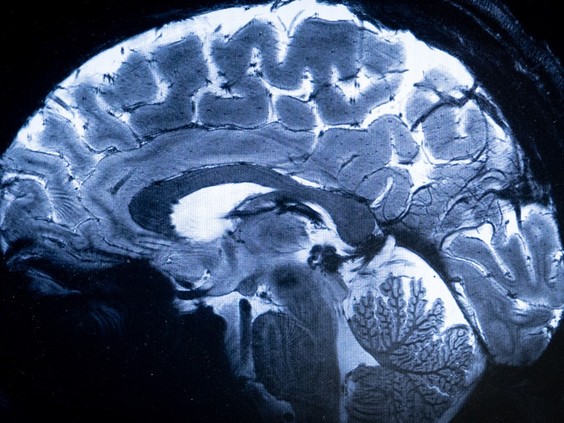New Brunswick's Mysterious Brain Disease
 |
| Investigation of a Cluster of a Potential Neurological Syndrome of Unknown Cause in New Brunswick |
"Unfounded concerns that a potentially fatal mystery disease, possibly induced by an environmental toxin, is causing the patients' neurological symptoms have been amplified in traditional and social media.""Misinformation regarding this cluster [of patients] has proliferated in both traditional and social media, from not only the predictable and easily identifiable groups co-opting the crisis to suit their agenda, such as anti-vaccine advocates, but also those who are unknowingly amplifying an incorrect diagnosis from their physicians."JAMA-published Study
 |
| A new study published in JAMA Neurology debunks “an alleged ‘mystery’ neurological illness” that emerged in New Brunswick six years ago. Photo by ALAIN JOCARD /AFP via Getty Images |
A new study evaluating patients at two hospitals in New Brunswick and Ontario that identifies symptoms possibly traced back to known neurodegenerative and non-neurodegenerative conditions, published in the journal JAMA Neurology, posits no evidence in claims of a mystery brain disease that centres itself in New Brunswick. Close to 400 residents of New Brunswick in the Acadian Peninsula and Moncton areas reported symptoms of a "neurological syndrome of unknown cause".
Symptoms are inclusive of memory problems, balance issues, behavioural changes, muscle spasms and bursts of intense pain. In 2022, a team of six neurologists and other experts in medical health, formed under the former government found no evidence after their investigation of 48 patients, that a cluster of cases existed. In fact, 46 of the cases studied for their report had been referred by one specific neurologist.
Once the list of patients reporting symptoms increased close to 400, the successive government committed to reopening the investigation. Authors affiliated with the University of Toronto, New Brunswick Horizon Health Network and other Canadian health institutions who had joined the updated study published in JAMA, support the initial research. Initial health records and follow-ups were studied between November 2023 and March of 2025, along with demographic data and autopsy reports when applicable.
According to the study's conclusions, conditions such as traumatic brain injury and metastatic cancer were identified in all 25 patients evaluated at New Brunswick's Horizon Health Network and Ontario's University Health Network. "Strong evidence" exists against an exposure to an environmental toxin which had been formerly posited as a source of the mysterious illness. The study pointed out that some of the patients' conditions were 'complex' warranting a second opinion: "However, it appears few patients sought this".
The reputation of the illness as a "mystery brain disease", the study suggested related to a combination of the public's decreased trust in public health institutions in the wake of the COVID-19 pandemic, along with a widespread general misinformation aura. Data indicated that patients could be suffering from other diagnosable neurological conditions, which a multidisciplinary treatment might benefit them with. "Some patients", noted the study, rejected the diagnosis of a second opinion, preferring to believe they were suffering from an unknown neurological disease.

In the 2022 report, the New Brunswick Health Department attributed some symptoms to conditions such as Alzheimer's, dementia, Parkinson's, paranoid schizophrenia, chronic fatigue, severe anxiety disorder, and cancer. Chief medical officer of New Brunswick committed his office to review 222 files with the Public Health Agency of Canada, to clarify issues surrounding the illness.
"[Despite the small sample size], when we did the statistics … the chances of any of those other individuals having a mystery disease was less than one in a million. So the numbers are pretty staggering and, I think very, very convincing.""The neurological problems varied a great deal. Some had neurodegenerative diseases, but others had other neurological problems and therefore a single environmental toxin … could never have explained this broad variety of neurological abnormalities.""I think that if there really had been a mystery disease with those numbers, we would have been hearing from more than a single physician. … We would be seeing physicians raising red flags, raising awareness and concern that there was an epidemic of neurological diseases that could not be explained."Dr. Anthony Lang, senior neurologist, neuroscientist, Toronto, among the 13 study co-authors
 |
| Of the 25 patients reassessed for the study, 14 are still living. (Shutterstock) |
"Clear and transparent communication strategies to report the much-needed re-evaluations are required.""Education, reassurance, and mental health support should also be prioritized for patients and families who have been profoundly impacted by claims that a potentially fatal mystery disease continues to affect them."JAMA-published Study
Labels: Dementia, JAMA Neurology, Mystery Illness, Neurodegenerative Conditions, New Brunswick, Parkinson's, Schizophrenia

0 Comments:
Post a Comment
<< Home